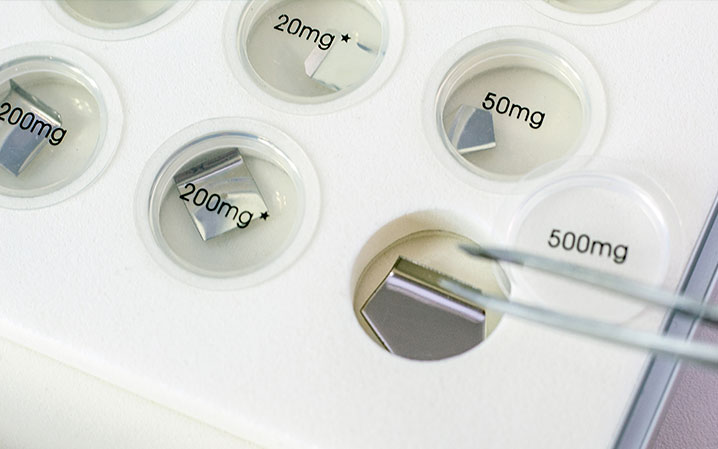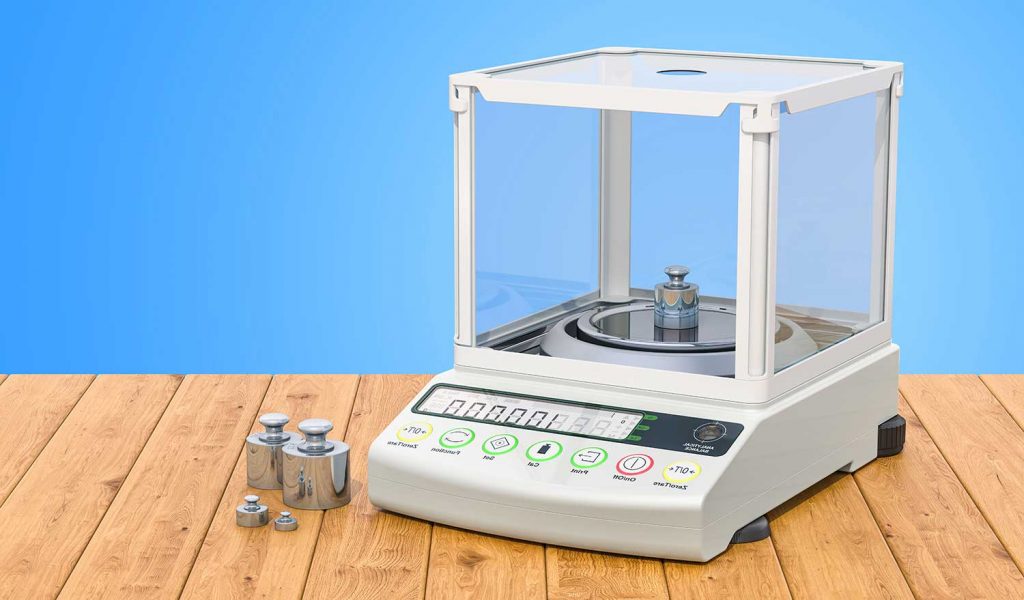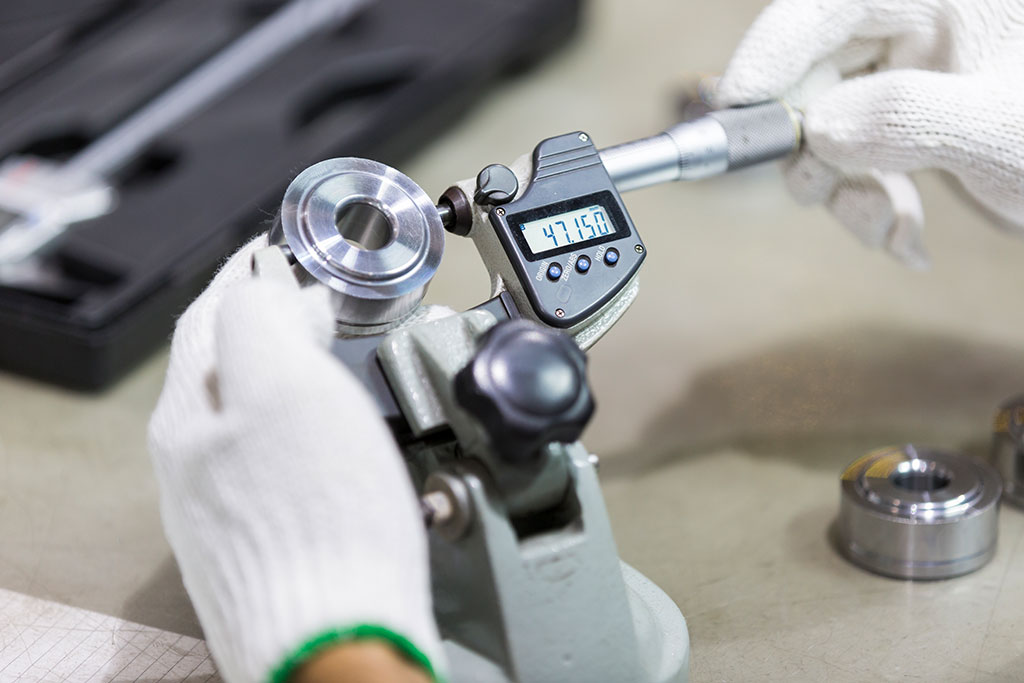For over 40 years, Allometrics has perfected the art of instrument calibration. “Where can I find quality calibration services near me?”
Right here!
What Is Balance Calibration?
Calibration is the method used to ensure and maintain the precision and repeatability of a weighing instrument. The calibration process corrects any irregularities the weighing instrument has by aligning it with an accredited standard for an acceptable range of results.

Why is Balance Calibration Important?
Weighing equipment
Varies in size and intended use. Laboratory balances are designed for the precise weighing of substances and compounds for the mass component in the vast majority of analytical testing methods. The capacity and readability of laboratory balances range from 2g by 0.001mg used in trace elemental analysis to 150kg by 0.1g. used for carrier gas blending.
Regardless of how big or small your balance is, over time, it will lose accuracy as a result of normal wear and tear caused by several factors, including:
- Regular Use
- Mechanical Shock
- Hazardous Environments
Balance calibration
For accurate weighing results, balance calibration is essential. Industries relying on consistent measurements to deliver quality products or services must prioritize this crucial service.
Inaccurate measurements can lead to financial losses, public safety risks, and legal consequences for the company.
Regularly scheduling balance calibration services and routine testing will significantly extend your balance or scale’s lifespan and maintain its accuracy.
Furthermore, balance calibration helps:
- Ensure consistent instrument readings.
- Assess the reliability of balance readings.
- Provide traceability for your weighing equipment.
Many benefits include:
- Cost Savings: Calibrated measuring equipment helps avoid waste, rework, and product recalls.
- Reliable measurements: Using professionally calibrated laboratory instruments guarantees that the results of any measurements made at your location will be compatible with those made at another. Therefore, your measurements will be accurate and reliable, as will your final product.
- Compliance: Each industry is subject to national and international standards. At Allometrics we assure your equipment will meet all compliance requirements from internal and external audits.
- Prevention and Maintenance: Laboratory equipment ages at different rates depending on the frequency and type of use as well as the environmental conditions. By periodically testing and calibrating your instruments, we can help detect mechanical stress on critical components and prolong the lifespan of your weighing equipment.
- Streamlining Processes and Increasing Profits: Balances and Scales that undergo professional calibration according to defined tolerances help improve industrial processes and ultimately serve to increase profitability.
Risks of Using Non-Calibrated Instruments
Balance calibration ensures consistent and accurate results, preventing errors that waste time and money. When companies use uncalibrated instruments, they risk facing production issues, such as:
- Unscheduled Downtime
- Issues with Product Quality
- Process and Audit Issues
- Costly Product Rework and Recalls


